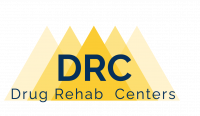Residential rehab is otherwise known as inpatient rehab. This is the most intensive form of treatment for alcoholism and drug addiction.
Although many people with milder addictions find outpatient treatment offers sufficient support and structure, most moderate or severe addictions benefit from more intensive treatment in a residential setting.
What is Residential Rehab?
If you require treatment for alcoholism (alcohol use disorder) or drug addiction (substance use disorder), you have two broad choices:
- Residential rehab
- Outpatient rehab
Residential rehab involves remaining at a treatment center from detox to discharge. The most common types of inpatient programs are:
- 30-day residential rehab
- 60-day residential rehab
- 90-day residential rehab
The optimum treatment duration is contingent on the scope and severity of your addiction and the presence or absence of co-occurring mental health disorders.
At residential rehab, you’ll benefit from the most structured and supportive environment with no triggers, temptations, or distractions from your recovery. You will also be exposed to a readymade sober support network of peers on their own unique recovery journeys.
After completing an inpatient treatment program, you can either step down to a less intensive form of outpatient programming or transition immediately into sober living.
What Happens at Residential Rehab?
NIDA (National Institute on Drug Abuse) defines addiction as an incurable and relapsing chronic brain condition. The core driver of addiction is the compulsive consumption of alcohol, prescription medications, or illicit narcotics in spite of obviously negative outcomes. The chronic abuse of substances triggers functional and structural brain changes.
Residential treatment for drug or alcohol addiction typically draws from a combination of similar therapies addressing both the psychological and physical aspects of substance use disorder. These include:
- MAT (medication-assisted treatment)
- Psychotherapy
- Counseling
In most cases, residential rehab will begin with a supervised medical detox at the treatment center.
Detox
If you develop an addiction and discontinue use of the substance, this often causes the presentation of a variety of adverse withdrawal symptoms. Detox is also associated with powerful cravings for drink or drugs.
Taking advantage of a supervised detoxification at residential rehab will streamline withdrawal and minimize the chance of any complications.
Detoxification usually takes between five and ten days. You will then be ready to transition into an inpatient program where you can access the following services:
- MAT (medication-assisted treatment)
- Psychotherapy
- Holistic therapies
MAT (medication-assisted treatment)
MAT is an evidence-based pharmacological intervention. Medications approved by the FDA can help mitigate the intensity of cravings and withdrawal symptoms during detox. MAT can also be beneficial during ongoing therapy, inhibiting further substance use and strengthening the likelihood of recovery without relapsing.
The FDA approves these medications for treating opioid use disorder:
- Buprenorphine
- Naltrexone
- Methadone
The FDA approves these medications for treating alcohol use disorder:
- Disulfiram
- Naltrexone
- Acamprosate
MAT is proven effective for treating substance use disorders and is most successful when administered alongside interventions like psychotherapy and counseling at residential rehab.
Psychotherapy
Psychotherapy is informally known as talk therapy. These are the most psychotherapeutic interventions applied to addiction treatment in residential rehab:
- CBT (cognitive behavioral therapy): You will work closely with a cognitive behavioral therapist to identify your personal triggers for substance abuse. The therapist will also ensure that you develop positive coping mechanisms, helping you to deal with stress in everyday sober living.
- DBT (dialectical behavior therapy): DBT was developed for the treatment of BPD (borderline personality disorder) and is now more widely utilized to treat various mental health conditions and co-occurring disorders. This form of psychotherapy can help strengthen your coping skills and distress tolerance.
- REBT (rational emotive behavior therapy): This intervention guides you to replace self-defeating, negative thoughts with healthy and rational alternatives, ideal for minimizing or eliminating behaviors like substance abuse.
Holistic therapies
You can access all of the evidence-based therapies above in residential rehab programs, as well as a variety of holistic treatments.
When used to treat addictions and mental health conditions, holistic residential rehab treats the whole body rather than only focusing on the symptoms triggered by alcohol or drug abuse.
Research indicates that treatment outcomes are more positive when a multi-dimensional holistic approach is applied to therapy.
You may have access to these therapies at residential rehab:
- Yoga
- Mindfulness
- Meditation
- Adventure therapy
- Acupuncture
- Massage
- Hiking
- Cycling
- Surfing
- EMDR therapy
- Aromatherapy
- Tai chi
- Music therapy
- Art therapy
- Biochemical restoration
- Animal-assisted therapy
- Sound therapy
- Nutritional therapy
- Exercise programs
Dual diagnosis treatment
If you have an addiction and a co-occurring mental health condition, this is known as dual diagnosis or co-occurring disorder.
Common addictions that present in dual diagnosis include:
- Marijuana
- Alcohol
- Heroin
- Cocaine
- Crack
- Meth
- Opioids
- Benzodiazepines
These mental health disorders are most commonly implicated in co-occurring disorders:
- Anxiety disorder
- Major depressive disorder
- Bipolar disorder
- Schizophrenia
- PTSD (post-traumatic stress disorder (PTSD)
In inpatient rehab for co-occurring disorders, you will first detox and then engage with a personalized array of MAT and behavioral therapies.
Residential Rehab for Drug or Addiction at Drug Rehab Centers
Here at Drug Rehab Centers, we can connect you with many high-quality residential rehabs throughout Orange County and Southern California.
Most people with moderate and severe addictions find that the structured and distraction-free environment of inpatient treatment offers the smoothest pathway to sustained sobriety.
Contact us online just here for more information about licensed medical detox centers near you, allowing you to initiate your recovery safely and comfortably.
To discuss your requirements and to access the best residential rehabs in California, call Drug Rehab Centers right now at (844) 739-2005.
